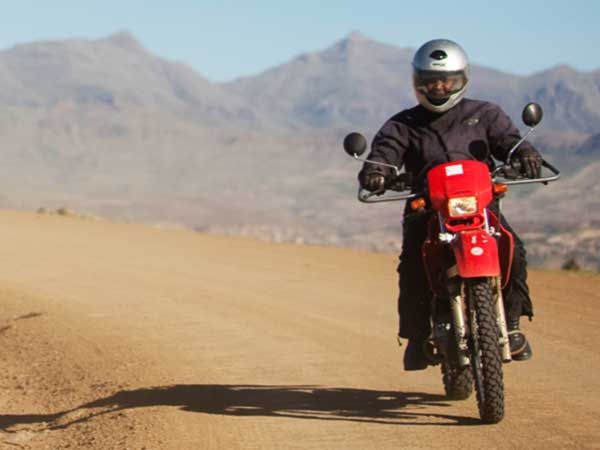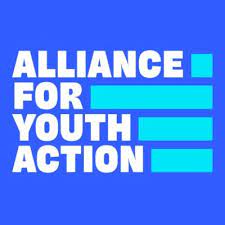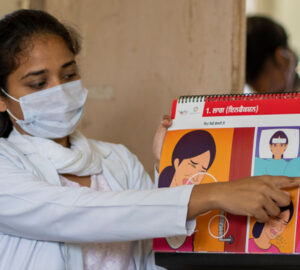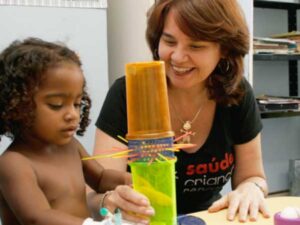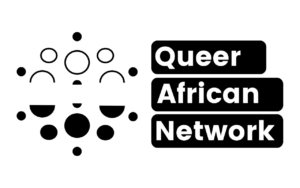The Elders Council for Social Entrepreneurs is building a supportive global network of social entrepreneurs who are looking to the future after founding innovative and impactful organizations. They engage with the social entrepreneur community through webinars, workshops and more. Riders for Health supplies, manages, and maintains vehicles for health-focused organizations in African countries.
Andrea Coleman of The Elders Council for Social Entrepreneurs spoke with Ashley Hopkinson on January 11, 2024. Click here to read the full conversation with insights highlighted.
Ashley Hopkinson: Can you please start by introducing yourself, describing the problem that you set out to solve, and explaining how you’re responding to it?
Andrea Coleman: I’m Andrea Coleman, a founder of Riders for Health and of Two Wheels for Life, and also recently of the Elders Council for Social Entrepreneurship.
A social entrepreneur sees a gap and wants to fill it, and to bring their own energy and expertise to that issue. The problem that we saw was that people in rural Africa were unable to access health on a predictable and reliable basis because of huge distances and tough terrain. The fundamental issue was transport. Transport ambulances, trekking vehicles, and motorcycles were being shipped in, but since nobody was trained to run and manage those vehicles, they broke quickly and expensively.
Because I come from a motorcycle racing background, this is something we know and understand that isn’t something that epidemiologists or people working in health systems are trained for. They’re trained to think about vaccines and so on. But whatever vaccine you develop, if you can’t get it into the arm of a child in a remote community because there’s no transportation, then you’re wasting time and money and lives.
We believe that focus is the real core of any endeavor, and we focus solely on healthcare transportation. We train local people to a high level in maintenance skills so they can run and manage vehicles. We’ve also developed very specific products for sample transport. We use motorcycles to do routes every day to collect samples from health centers and clinics, take them to the laboratory, and then get diagnoses and bring them back to patients.
We have also developed ways of digitally getting results back to patients. People used to think that the mobile phone was a “leapfrog technology,” and that it could somehow be used to solve the problem of transportation. But ultimately, you can’t do without transportation. One way or another, you have to get people to people. For a woman to look a health worker in the eye – not through a mobile phone – is really fundamental, yet it’s overlooked all the time.
I’d just like to add that we’ve always said these efforts must be led by people who are nationals of the country, and that there must be as many women as men in the whole thing. There shouldn’t be a masculine element to transport when women are just as good at driving and mechanical work. So all our programs are run and managed by people of those countries and always have been, and we just provide support.
Ashley Hopkinson: Who would you say you’re primarily serving?
Andrea Coleman: What gets me out of bed in the morning is knowing that there are women and children in very remote, rural communities who don’t get regular healthcare. Those are the people that we feel benefit most from what we do. One of our leaders in Malawi, Mphatso Kachule, once said a wonderful thing: “People say that silence is golden. But if you are in a remote village and you are sick or your child is sick and you hear the sound of a motorcycle bringing a health worker, then that sound is golden.” That’s very moving for me, because people dismiss transportation so quickly.
But really we serve the Ministries of Health, because they’re the people who need the job done. We’re there to help them with the transportation that underpins all healthcare work. We also serve the people who work in rural hospitals and clinics, who have to walk for hours and sometimes days to get samples that can be spoiled to a laboratory. These workers are incredibly committed, but when they have to leave their hospitals for hours, then there’s nobody left behind to serve the community.
Transportation is really a vital piece of the health system. And it only works if you keep maintaining the vehicles, which is also a great source of employment. Not everybody wants to be a doctor, and a trained mechanic or stores manager also plays a fundamental role in making a health system work consistently.
Ashley Hopkinson: What makes your organization distinct?
Andrea Coleman: Our organization is distinct because we look at something that is not glamorous, and yet it’s vital to the health system. A midwife, a public health worker, a vaccine, a blood supply, or a sample: all those things need mobility.
I also think what we do is distinct in that it is Africa-led, and that many of our national programs are led by women. And I think it’s unusual in the way that we’re all interested in health, but work with vehicles, which are very practical. Other people may think, “Oh, that’s just an oily hands thing.” But we know it’s distinctive because it underpins everything that enables people to get healthcare access, whoever and wherever they are.
Ashley Hopkinson: Can you share an example that illustrates the impact of your work?
Andrea Coleman: I started raising money in 1986, knowing that I wanted to do something to be supportive of the African continent. On my first visit to a rural community, I saw a woman being taken to hospital by her husband, who was pushing her in a wheelbarrow. She was in labor, experiencing obstetric difficulties, and her poor husband was exhausted. It was heartbreaking. And then, the very next day, I was at a Ministry of Health thirty miles away, and there were vehicles in the car park – all relatively new – that were broken. None of them were working because nobody had been trained to maintain them.
If you added up the sum for having purchased those vehicles, you are wasting huge amounts of money, and you’re throwing away precious lives. A nurse I spoke to in The Gambia a couple of years ago told me, “If you lose one woman, you lose someone who looks after the children and the old people in a community. You can’t afford to lose a woman.” I believe that. Particularly in remote rural villages, it’s women who are key to keeping a community healthy, so you have to keep them healthy.
It’s really those women who work in the field, carrying water, and carrying babies. When they are pregnant, they need to be taken care of. If there’s no transport to take them to a hospital or bring a midwife to them, then we should be ashamed of ourselves. If vehicles run here, why can’t they run in Africa? It’s not magic.
Ashley Hopkinson: What would you say is an insight or a piece of wisdom that you have from doing this work?
Andrea Coleman: Two other social entrepreneurs and I have started an organization called The Elders Council for Social Entrepreneurship. We are all over 70 and have been running our organizations for more than 30 or 40 years. We feel that the people who work in social enterprise have a huge amount of wisdom, but often tend to neglect themselves and put others first. So we’ve set this up so people don’t feel lonely in a way, and to focus on sustaining social enterprise.
When we go to a conference, we have to put on our best faces and say everything’s going really well, and it’s often not going well. Being a social entrepreneur is hard. We attempt to solve tough problems in ways that nobody else has ever tried, and often put the needs of whole communities ahead of our own. So we felt that young people coming up through social enterprise need a kind of community support.
As they say on an airplane, “If something’s going wrong, put your own oxygen mask on before you help put the mask on a child.” I don’t think you can change the nature or character of social entrepreneurs, and they often come from a place of trauma. There are very few social entrepreneurs I know that didn’t have traumatic upbringings that really moved them in terms of developing a strong sense of compassion and dedication. So I think social entrepreneurs must try to find people who will look after them, and mentor them to take care of themselves. That way they can be active and impactful for longer.
Also, it’s important to stay focused. People always talk about business models. Of course, you have to think about how to make your money efficient, effective, and impactful. But try not to get lured into using the enterprise language of typical entrepreneurs. And be aware that people try to make heroes out of social entrepreneurs, because they don’t benefit financially and often put the needs of others ahead of their own, which is dangerous. Riders for Health ran into terrible difficulties because people tried to make it an iconic thing, which brought egos into it. So you have to have huge resilience. There will always be a tension between money and mission, so just be careful, and make sure the drive is on the mission side.
Ashley Hopkinson: What about this work is most challenging for your organization?
Andrea Coleman: I think the greatest difficulty that Riders for Health faces is getting people to acknowledge that well-managed transport is vital to the health system. That work has challenges of its own: new technologies. People think that smartphones and drones are a silver bullet that will solve access to healthcare across Africa. They are very helpful things, but they’re only part of a mixed access. Underpinning it all is transport.
Even after all this time, we still have huge amounts of difficulty in convincing others that putting rubber on the ground, getting goods and services out to the rural communities, and linking those people to clinics and laboratories is absolutely fundamental to any health system.
Ashley Hopkinson: In doing this work, how do you measure success?
Andrea Coleman: With our digital development, we’re now showing how many more people and how much further we are reaching, and how many more people can be seen by a single health worker because they’re mobilized. Just as a headline: we know that with a motorcycle, a health worker can see six times more people and deliver six times more services.
We are also looking at the quantity of samples that we move on a weekly basis and tracking how much that increases all the time, showing how many more patients are getting their results since before we carried them. Because samples are sensitive to heat, light, vibration, and time, they’re very easy to spoil. We carry them properly, and we track how many more successful samples we are able to move, and how that number is growing on an annual basis.
And then, of course, we work with our partners to see what they are able to deliver now to communities that they weren’t able to do before. For instance, how many more women in a hard-to-reach community are now getting to hospital in time to deliver their babies?
Ashley Hopkinson: How do you feel like the organization is working towards systems-level change?
Andrea Coleman: In 1997, when I first met Mahali Hlasa in Lesotho, she was a public health worker who was furious with the Ministry, saying, “I have to be able to get out to these patients, and I don’t know how I’m going to do it.” So she was the first woman we trained to ride a motorcycle to get out to rural communities. Then, she became a trainer of other riders, and now she’s the leader of the organization in the country.
In the countries in which we work – Malawi, Lesotho, The Gambia, Nigeria, and Liberia – the Ministries of Health, the UN, UNICEF, the Clinton Global Initiative, The Global Fund, and other organizations use our services to maintain their vehicles, make their systems work, and ensure they’re able to access the people that they serve.
So in a sense, we’ve put in a system where there wasn’t one. You can see it. And we know how much every kilometer costs, so that the Ministries of Health and other partners know what their annual costs are in terms of moving goods and services. I think if you could look nationally at the difference that Riders for Health has made in the countries in which it works, it’s been transformative. The people there see the bikes and know that Riders for Health is what brings them healthcare. We’ve brought in a transparent, sustainable system that’s made a big change, that we’re still working to extend and improve all the time.
Ashley Hopkinson: What would you say is needed from other actors in this space to help advance your work?
Andrea Coleman: Acknowledgment that transportation maintenance is important. Something that happens often is that, because vehicles break down so often, people expect them to, and so it doesn’t alarm them. And then, people become so used to things not working that they don’t think that they can work.
For instance: we started working in Lesotho in 1997, and we ran 48 motorcycles there for seven years without a single breakdown. As a result, the Ministry of Health there thought that, all of a sudden, motorcycles were being made that never broke. They didn’t think, “Oh, well, it’s because they’re now being maintained.” They thought there was a change in how motorcycles were made, so they asked us to leave. “Thanks, but we don’t need you anymore.” Three years later, they invited us back and said, “We get it now. We understand that we need Riders for Health.” Now in Lesotho, we run all the vehicles for the Ministry of Health and work with all NGOs in the country. It’s quite a success story.
Even still, I just wish people would acknowledge the work of Riders for Health and how worthy it is. People will often say to us, “What you do is really brilliant,” but they won’t turn around and say to others at a conference, “What you need is Riders for Health.” It’s very frustrating. There’s a lot of competition and jealousy in the NGO environment, where everybody wants to claim that they’re the ones making a difference. People will come to us and say, “We really need our vehicles managed and maintained,” but once our work is done, we become invisible.
I was at a UN conference a few years ago in New York, where the subject was infrastructure development. Right at the end of the day, I put my hand up and I said, “Nobody has mentioned maintenance. Everything needs maintenance, but not once have I heard anybody mention it in this discussion. Everybody’s talking about sustainability, but something can’t be sustainable if it’s not maintained.” And they said, “Well, it’s not been mentioned because we never thought of it!” Nobody thinks about maintenance. People act as if it happens magically in the developed world.
Ashley Hopkinson: How do you work to cultivate partnerships and create sustainable change, given the obstacles you face?
Andrea Coleman: We work hard to build partnerships, because we are really only a means for other people to be successful. Running transport is expensive, but it’s part of the cost of doing business and doing it well. What people don’t realize is that a broken vehicle up on breeze blocks is also expensive, and it’s losing value all the time. So we make sure that maintenance is cost-effective.
Also in Africa, it’s very tempting for people running transport to say, “Well, let’s only reach those nearest to us, and not go out to the furthest people.” The last mile is always the most expensive. But the people out there are no less valuable than anybody else. So we have to show that we do a good job and that we can help them do a better job. That works well on the ground. Once you show that to the Ministries of Health, you become a very valued partner.
It’s harder with overseas NGOs because they always seem to know better. There’s another aspect, and this is slightly more sensitive in that, other people working in health in the NGO community, it’s something to do with egos and not being able to admit that maybe you’re spending more on transport than you ought to. I don’t know quite what it is, but we do have trouble with some people working in health in other parts of the forest.
Ashley Hopkinson: I think people working under the healthcare umbrella try not to be competitive, but end up in a competitive space.
Andrea Coleman: It’s not just competition, I think it’s also something to do with egos. Part of it is that American social enterprises working in Africa tend not to have African leadership. They have African management and workforce, but they tend to be led from America. There may be a bit of a culture clash in that. We believe in African leadership, not command and control.
Ashley Hopkinson: That might explain some of the synergy you have experienced working with Ministries of Health. My family is from Guyana, and I spent a good bit of my childhood there. In Guyana, whenever people sense that you understand Caribbean culture, their respect gets higher. Even if someone’s coming in from another nation like Trinidad or Haiti or Jamaica, there’s a unique, shared understanding.
Andrea Coleman: That sounds right. The work has a very different feel when it’s Africa-led. At one point, we had a UK office of Riders for Health, and the programs in the African countries. I’d been the CEO right from when we founded it, but we needed a way of ensuring clear African leadership and not trying to lead from the UK office. It was very difficult to do, because we didn’t want the programs to feel as though we were suddenly abandoning them.
It was a very difficult succession process. The leadership became Kayode Ajayi in Nigeria, Mahali Hlasa in Lesotho, and Therese Drammeh in The Gambia. But it was tricky, and took about four years to find the right balance and strength. Now we support and fund at their requests. We don’t say, “This is what you’re going to do.” They say, “We need this,” and we do it. It’s a very healthy relationship.
People talk all the time about systems change, but so few people talk about behavior change. If you don’t have behavior change, systems will morph back into whatever they were before. And you can change systems relatively quickly, but changing behaviors takes time, patience, and sensitivity.
Ashley Hopkinson: Throughout the years that you’ve been doing this work, is there something that you’ve tried that didn’t work? And what did you learn in the process?
Andrea Coleman: I spoke to my board in 2013 about the fact that I thought it was time for us to have new leadership. They said, “Oh, no, you can’t go. You’re the best fundraiser. You are the heart and soul of it.” And I said, “But I can’t go on forever.” We almost lost Riders for Health because of some people wanting to take it over, saying that they could bring in money that they actually could not. Originally having said I couldn’t leave, the board suddenly turned on me and said that they wanted new leadership.
It was absolutely brutal. I thought I was going to lose my mind. But what I learned to do in that time was simply focus on the mission. I thought, “What do we actually want? We want African leadership and we want the programs that we’ve got to continue.” So, I just focused on working with the African programs and raising money in the way I knew I could for them, and not thinking about any of the fuss, anger, and disappointment. I remember at a Skoll Forum in 2016, somebody said to me, “Oh well, everybody fails.” And I said, “This is not going to fail.” I was so determined not to lose everything, and to stay focused on why we started it in the first place.
It’s hard being a social entrepreneur. At one point, my husband and I were joint CEOs, and I had remortgaged our house to get it started in 1996. We were lucky to get through it and stay married. You take big risks and at times almost put the work before your family. In the end, you just have to keep focused on why you started it in the first place, and you’ve got to keep strong.
Ashley Hopkinson: How would you love to see your organization evolve?
Andrea Coleman: All our staff in the programs are such strong, quiet, and good people, and they’re brilliant at running the work on the ground. But what you actually need in terms of gaining recognition and funding is the confidence and voice that enables you to stand up at conferences, ask funders for money, and present the work on a global level.
I need some way of helping our African leadership to develop that voice, because unless the work is deeply rooted in Africa with African people, it’s not going to survive. But it’s got to be their own voice talking strongly about the need for what they do and what they’ve done. I find that really tricky, and I would love some guidance in helping people to develop that voice.
Ashley Hopkinson: Thank you so much, Andrea, for sharing your insights with me today.
Click here to read the full conversation with insights highlighted.
Ashley Hopkinson is an award-winning journalist, newsroom entrepreneur and leader dedicated to excellent storytelling and mission-driven media. She currently manages the Solutions Insights Lab, an initiative of the Solutions Journalism Network. She is based in New Orleans, Louisiana.
* This interview has been edited and condensed.
Learn about other innovative organizations that provide support to social entrepreneurs.

